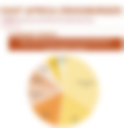Who are we?
The Food Security and Nutrition Working Group (FSNWG) is a regional platform, currently co-chaired by ICPAC and FAO. It’s goal is two-fold: to provide an up-to-date food security and nutrition situation analysis (early warning) and to offer a forum to build consensus on critical issues facing policy and interventions. The FNSWG has served regional governments, donors, and non-governmental agencies since the early 2000’s. Current membership includes approximately 80 organisations (IGAD, UN agencies, NGOs, donors, and research institutions) who contribute to the operation of the working group, and its nutrition, markets, food security information, livestock and pastoralist sub-groups.

Featured Updates

FSNWG Food Security and Nutrition Update - March 2025
In March 2025, an estimated 85 million people in the region were highly food insecure and in urgent…

FSNWG Food Security and Nutrition Update - January 2025
In January 2025, an estimated 82.1 million people in the region were highly food insecure and in ur…

IGAD Regional Focus of the 2024 Global Report on Food Crises
The IGAD Regional Focus of the 2024 Global Report on Food Crises underscores a deepening food insec…

East Africa cross-border trade bulletin for January - March 2024
The Market Analysis Sub-group of the Food Security and Nutrition Working Group (FSNWG) monitors inf…
Browse Updates
Filter by Update Type
Filter by Year
Filter by Month
Showing 68 results

January 2023 update
According to the most recent IPC2 analysis, about 78.3 million people in 11 of the 13 countries covered by FSNWG were highly food insecure (IPC Phase 3+) and in need of urgent humanitarian assistance in …

East Africa cross-border trade bulletin for October-to- December 2022
The Market Analysis Sub-group of the Food Security and Nutrition Working Group (FSNWG) monitors informal cross- border trade of 88 food commodities and livestock in eastern Africa in order to quantify the impact on regional …
Joint Statement on the ongoing Drought in the Horn of Africa, November 2022
Immediate global action required to prevent Famine in the Horn of Africa: A 5th consecutive season of drought has been set in motion by a poor start to October - December rains, and below-average …

Food Security Statement for October 2022
Key messages
- About 56.6 million people in 10 of the 13 countries covered by FSNWG were highly food insecure (IPC Phase 3+) and in need of urgent humanitarian assistance in October 2022. Of these, about …

Food Security Statement, August 2022
Key messages
- Drought conditions continue to worsen in southern and south-eastern Ethiopia, the arid and semi-arid lands (ASALs) of Kenya, and most of Somalia following four consecutive seasons of below-average rains.
- Agro-pastoral populations in Baidoa …

FSNWG Drought Special Report 29 July 2022
Prior to the 2022 March to May (MAM) rainy season, the East Africa region had already been struggling with severe drought conditions, with most areas of the eastern Horn of Africa, particularly northern and eastern …
